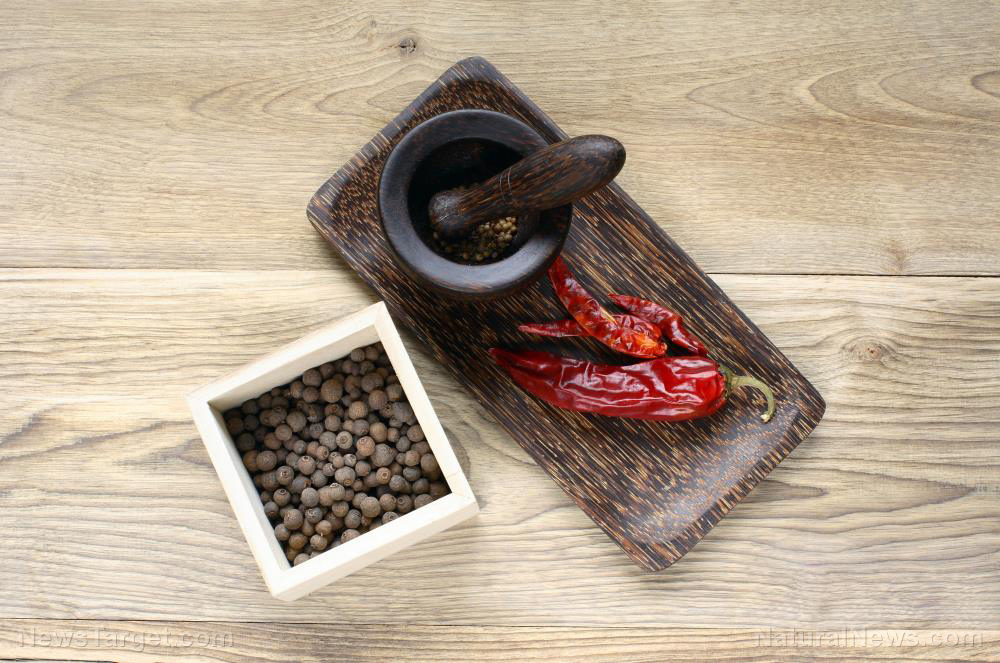6 Health benefits you experience when eating coriander
03/11/2019 / By Edsel Cook

Add as much coriander to your meals as you possibly can. Not only does it help bring out the flavor of other spices, but the dried seeds of the cilantro (Coriandrum sativum) is a superfood that supports the normal functions of the cardiovascular, digestive, metabolic, and respiratory systems.
People who consume at least a tablespoon of coriander each day are much less prone to developing heart diseases, diabetes, and other disorders. They are also getting a lot of the nutrition they need on a daily basis. (Related: Easy ways to incorporate vegetables into your breakfast.)
Coriander prevents food poisoning and improves digestive health
Eating coriander seeds and cilantro leaves can protect the liver and kidney from the toxic effects of foreign substances. They prevent the harmful chemical reactions of food poisoning.
This is supported by the findings of a 2018 animal study by the University of Agriculture Faisalabad (UAF). Rabbits suffering from chemically-induced liver poisoning were given sauces made from coriander and cilantro. The treated animals showed reduced levels of toxicity in their organs.
The dried berries also have a unique means of stopping inflammation. Eating coriander can relieve bloating, flatulence, and other symptoms of an inflamed digestive system. A single tablespoon of the spice not only calms your intestines, it also boosts your gut’s absorption of nutrients from digested food.
Eating coriander seeds regulates cholesterol levels and manages blood pressure
Furthermore, coriander contains several kinds of organic acids that control the amount of LDL cholesterol in the body. By keeping the levels of “bad” cholesterol to a minimum, the acids prevent the inner walls of blood vessels from getting thicker and more constricted.

Many cardiovascular diseases stem from high levels of LDL cholesterol that cause the blood vessels to thicken. So the consumption of coriander can help reduce the risks of atherosclerosis, heart attacks, and strokes.
At the same time, coriander increases the level of HDL cholesterol in the blood. This “good” cholesterol is a building block of beneficial organic compounds, such as the bile acids and neutral sterols produced by the liver.
In addition, coriander catalyzes a vital reaction between calcium ions and acetylcholine that naturally causes stiff blood vessels to relax. When paired with its ability to manage bad cholesterol, this relaxing effect is a boon for people who suffer from high blood pressure, a health disorder that can also lead to cardiovascular diseases.
A spoonful of coriander boosts the immune system and protects against diabetes
Beta-carotene, folic acid, and vitamin A are just some of the nutrients packed into each dried berry of coriander. The essential vitamins help strengthen the natural defenses of the body against the viruses that cause the common cold and influenza.
Another vitamin that can be found in large amounts in coriander is vitamin C. The antioxidant by which all others are measured, it works alongside the immune system to prevent infectious disease.
Thirty percent of the USDA-recommended daily intake of vitamin C can be provided by roughly one tablespoon of coriander. Three such servings ensures you are well-protected against cold and flu viruses.
Last but not least, coriander demonstrates that it can improve the effectiveness of insulin. It encourages the pancreas to release the important hormone and helps bring down sugar levels in the blood. By stabilizing the blood glucose levels, the seeds’ double-action effect greatly reduces the danger of diabetes, which develops from constant disruptions of metabolic functions.
To this end, it is recommended to drink coriander-infused water as much as possible. Soaking 10 grams of crushed seeds for every 10 parts water overnight creates a healthy and tasty drink that could help keep diabetes away.
Sources include:
OAJI.net [PDF]
Submit a correction >>
Tagged Under:
blood pressure, cardiovascular disease, cholesterol, cilantro, Coriander, coriander seeds, diabetes, digestive system, food cures, food is medicine, functional food, hepatoprotective food, immune system, Spices
This article may contain statements that reflect the opinion of the author





















